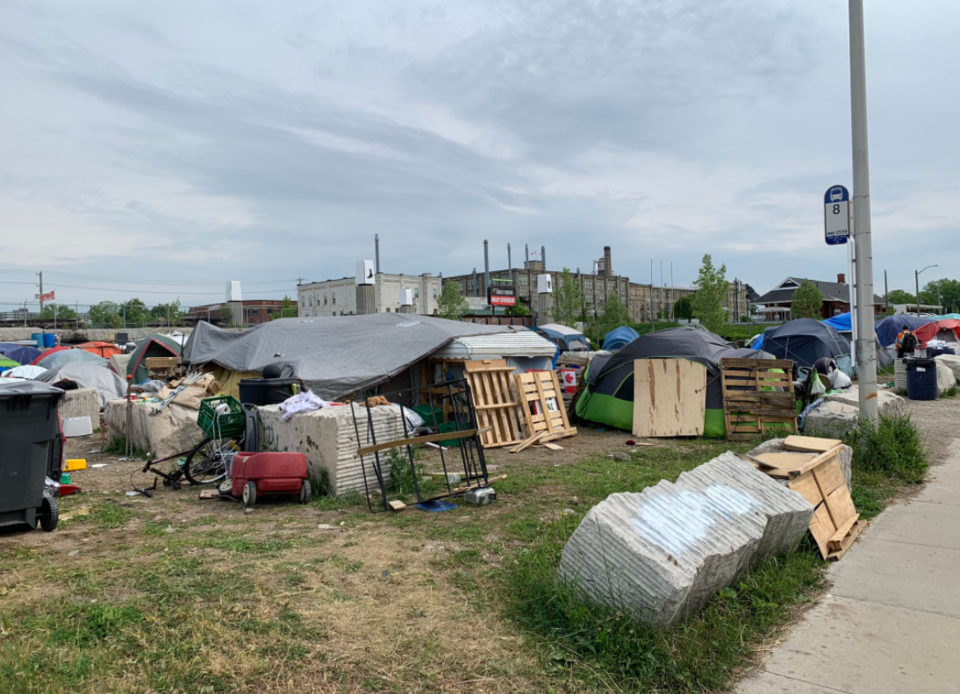CambridgeToday received the following letter from Advocacy Centre for Tenants Ontario.
To all municipal councils in Ontario
Community Legal Clinics provide poverty law services for vulnerable and marginalized people throughout Ontario. One of our clinics recently represented unhoused residents of Waterloo Region in the municipality’s lawsuit to evict residents living at an encampment. Other clinics are representing unhoused residents against the municipalities of Hamilton and Kingston who are attempting to do the same.
We are writing to you to express our concerns regarding the approach taken by some municipalities in Ontario towards encampment evictions despite the recent ruling of the Ontario Superior Court in The Regional Municipality of Waterloo v. Persons Unknown and to be Ascertained, 2023 ONSC 670 (the Waterloo decision), which held that the proposed encampment evictions were unconstitutional because they violated the Charter.
No one wants to see our neighbours living in encampments. However, the Charter dictates that unless and until encampment residents are provided with truly accessible accommodation, evictions should not occur. Moreover, encampment residents deserve to be consulted and involved when municipalities are attempting to find solutions for them.
An alarming and increasing number of Ontarians, most of whom are living with disabilities, are now forced to live outdoors in dire poverty. They are forced to live outside because of many systemic factors, including:
- Deplorably low social assistance rates (shelter rates are stuck at monthly rates of $556 for Ontario Disability Support Program recipients and $390 for Ontario Works recipients);
- A federal government that stopped supporting public and market affordable housing for almost three decades;
- A Landlord and Tenant Board that prioritizes hearing landlord’s rights applications over tenant applications; and,
- A provincial government that has made rent less affordable by not only maintaining the absence of rent control for vacant units, but also introducing new rent control exemptions.
As the Association of Municipalities of Ontario has noted, the homelessness crisis in this province is a “made in Ontario crisis” brought about by the policy decisions and choices of successive provincial governments over the past three decades.
Municipalities are responding to the needs of their residents differently. Some are taking a tacit acceptance approach to encampments, where bylaws are not being enforced and policies are being enacted focusing on a human rights based approach. This approach often involves bringing residents into the decision making table and treating them as rights holders to determine the best way that they can be supported. Unfortunately, other municipalities are taking the opposite approach and focusing on clearing and forcibly removing residents, resulting in people being displaced with nowhere else to go.
Forcibly removing encampment residents without judicial oversight in this way is both unethical and unconstitutional, as set out in Waterloo. Where disputes over encampments arise, municipalities must first consider whether their bylaws and policies comply with this decision. Waterloo held that bylaws permitting municipalities to remove encampments and their residents from municipally-owned property could not be enforced unless and until the municipality had provided truly accessible accommodation which genuinely meets the individual needs of the encampment’s residents.
There are many legitimate reasons why an individual may be unable to access a shelter bed, many of which were summarized in Waterloo. The Charter requires that a municipality not only demonstrate that it has enough shelter beds to serve the number of people experiencing homelessness, but also that those beds meet the needs of the people they are intended to serve. Enforcing encampment evictions in the absence of suitable indoor alternatives is unconstitutional.
Waterloo also endorsed the process of a municipality bringing the issue to the Court for a determination of at what point the legal standard is met, and invited the Region of Waterloo to return when it believes that it has satisfied the Charter’s requirements. Kingston City Council is following this same approach. Notwithstanding this, litigation is never the best use of taxpayers’ dollars. It expends limited funding that could be used for providing shelter. It expends the limited resources of community legal clinics and non-profit organizations. Lastly, it creates new trauma and uncertainty for individuals who are unhoused. Instead, we urge you to follow the recommendations found in the National Protocol for Homeless Encampments in Canada, including consulting with residents of encampments and community stakeholders.
We urge municipal leaders to lead with a human rights based approach and respect and follow the Waterloo decision and the Bamberger decision from British Columbia. Enforcement and displacement should be used as a last resort. Any enforcement ought to be guided by the Superior Court as sought by applications by the Regional Municipality of Waterloo and the City of Kingston.
We are happy to provide further information or to discuss this with you or your legal representatives at your convenience.
Yours truly,
Advocacy Centre for Tenants Ontario


